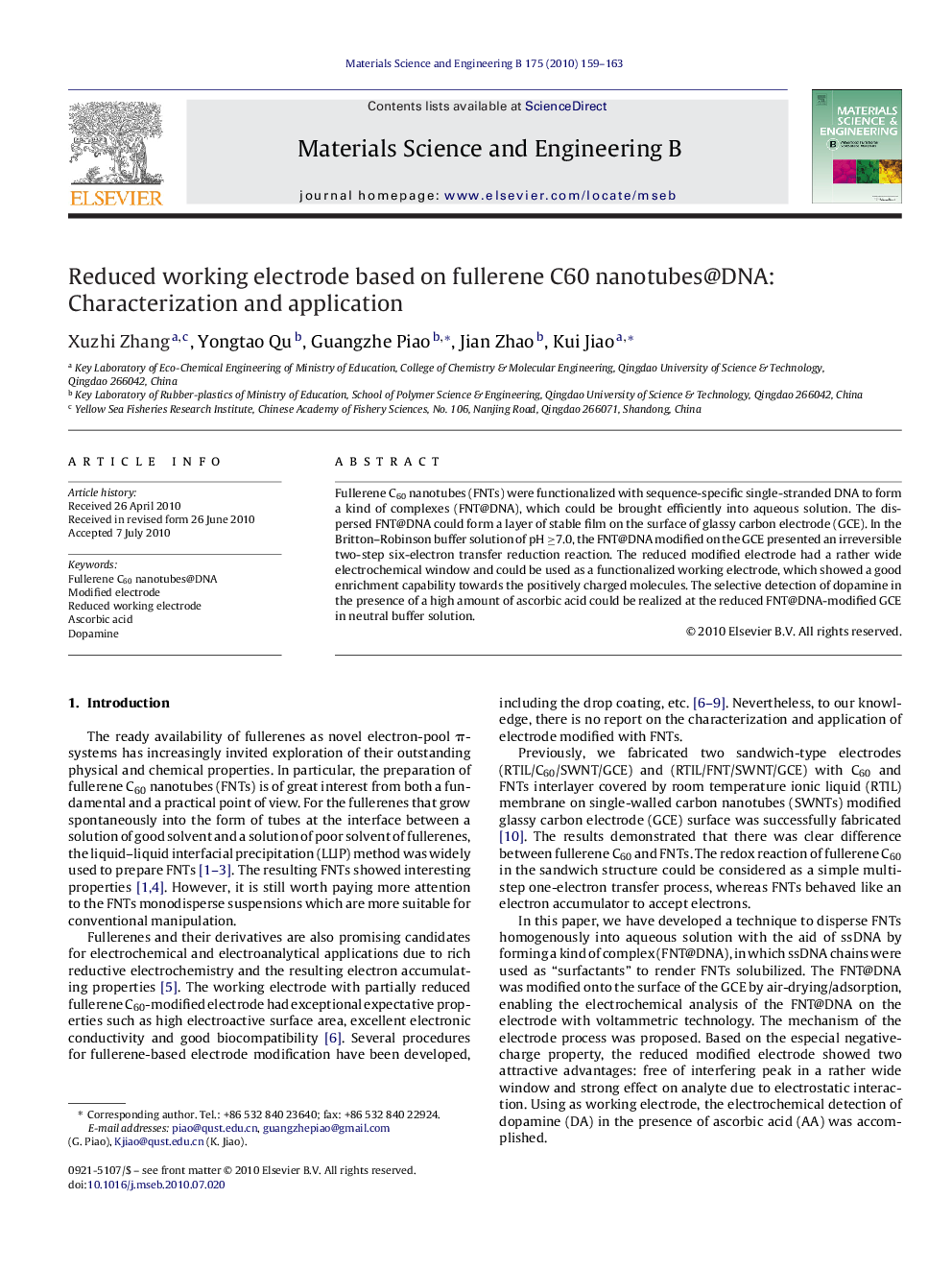| Article ID | Journal | Published Year | Pages | File Type |
|---|---|---|---|---|
| 1529834 | Materials Science and Engineering: B | 2010 | 5 Pages |
Fullerene C60 nanotubes (FNTs) were functionalized with sequence-specific single-stranded DNA to form a kind of complexes (FNT@DNA), which could be brought efficiently into aqueous solution. The dispersed FNT@DNA could form a layer of stable film on the surface of glassy carbon electrode (GCE). In the Britton–Robinson buffer solution of pH ≥7.0, the FNT@DNA modified on the GCE presented an irreversible two-step six-electron transfer reduction reaction. The reduced modified electrode had a rather wide electrochemical window and could be used as a functionalized working electrode, which showed a good enrichment capability towards the positively charged molecules. The selective detection of dopamine in the presence of a high amount of ascorbic acid could be realized at the reduced FNT@DNA-modified GCE in neutral buffer solution.
